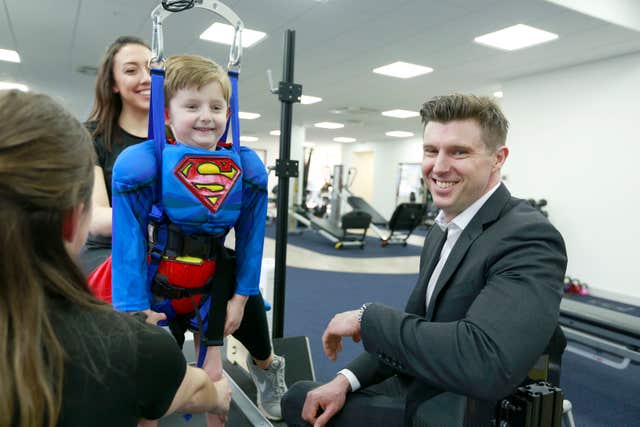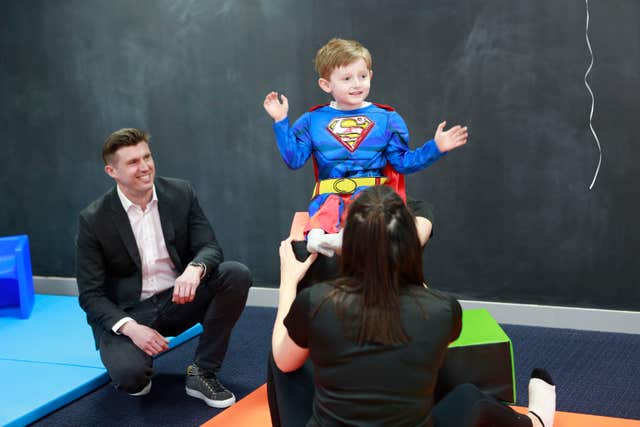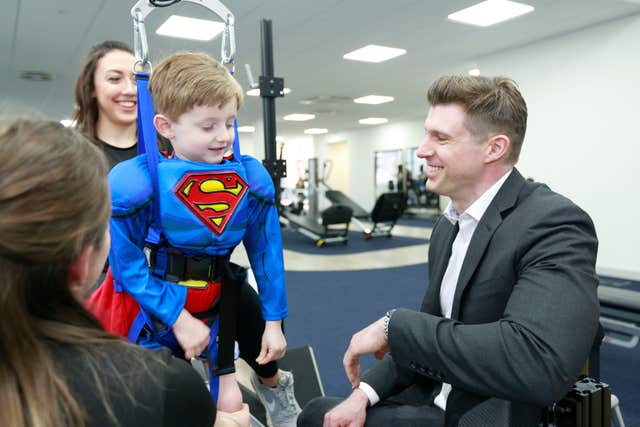The son of the late Superman star Christopher Reeve will open the country’s first spinal cord rehabilitation clinic for paralysed children.
The actor’s 38-year-old son Matthew will attend the official launch of Neurokinex Kids in Crawley, West Sussex, on Thursday.
The clinic is the first of its kind in the UK and is part of Neurokinex Gatwick – the only affiliation to the Christopher and Dana Reeve Foundation’s NeuroRecovery Network (NRN) outside the US.

Reeve won a Bafta for his role in the 1978 superhero film but was injured in 1995 after being thrown from a horse at an equestrian competition in Virginia.
He became quadriplegic, was confined to a wheelchair and relied on a portable ventilator for the rest of his life.
This prompted him to campaign for more support for those with spinal cord injuries and set up the foundation to help improve their health and quality of life.
Before he died aged 52 in 2004, he also lobbied for human embryonic stem cell research.
The £300,000 centre has the capacity to treat 20 paralysed children a day and pledges to use the latest scientific research to help them become more active.
The organisation believes young children who are paralysed are more likely to develop long-term health problems when they grow older but they are more receptive to activity-based rehabilitation.
In particular, locomotor training and neuromuscular electrical stimulation (NMES) – treatments which the centre said were not available anywhere else in the UK or Europe – will be on offer.
Both are therapies which aim to stimulate nerve and muscle movement.

Locomotor training involves suspending the patient above a treadmill to practice standing and stepping, which can improve their ability to sit and walk.
NMES uses pulses of electrical current to prompt muscle contractions.
Matthew Reeve, the foundation’s vice chairman of international development, said: “Since its inception, the goal of the NRN has always been to develop cutting-edge treatments so individuals living with paralysis could recover functions once thought to be lost.
“This partnership with Neurokinex is the Reeve Foundation’s first endeavour to establish a global network of rehabilitation facilities united under a common protocol.
“Every NRN participant has experienced significant improvements ranging from enhanced physical health and quality of life to standing and even stepping.
“We look forward to hearing more success stories from this Gatwick facility and we’re confident more and more people living with paralysis will continue to benefit from the NRN’s approach to improved care, recovery, and rehabilitation.”

Someone is paralysed every eight hours in the UK, according to research the centre cites from BackUp Trust.
Some 40,000 people in the country have a spinal cord injury and there are 1,000 new cases a year.
One in 400 babies is born with cerebral palsy, according to CerebralPalsy.org.
Patients will be referred by spinal cord injury units after being discharged from hospital.
Treatments will cost £70 an hour and two or three children could be treated at a time.
A bursary has been set up for children and families, with bulk booking discounts available.
